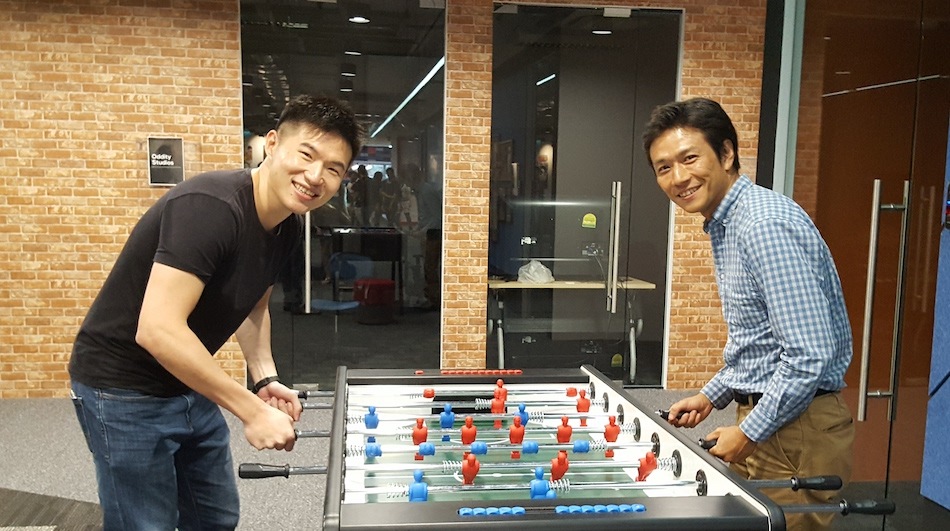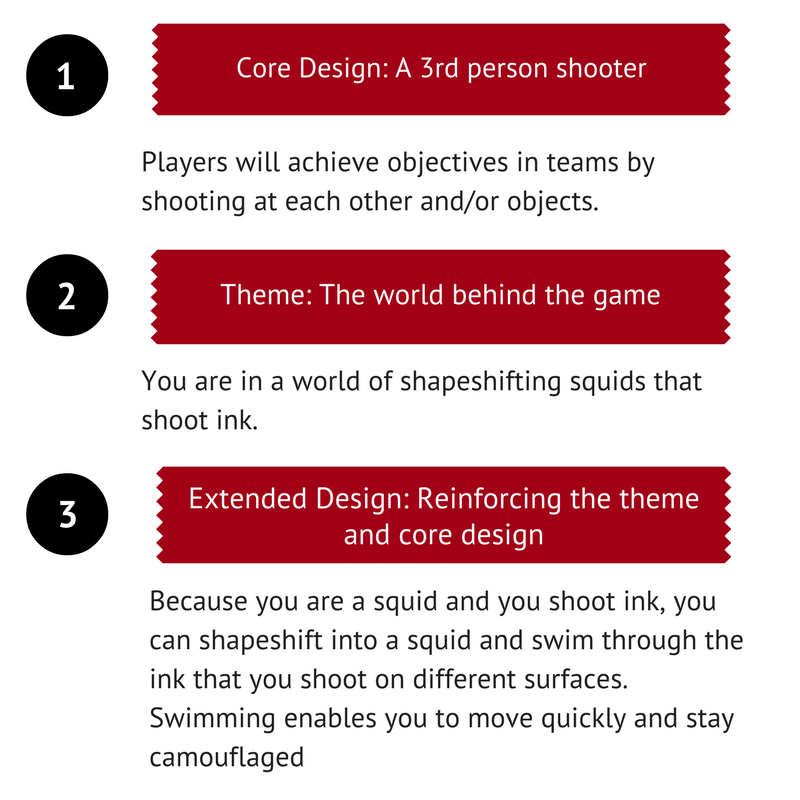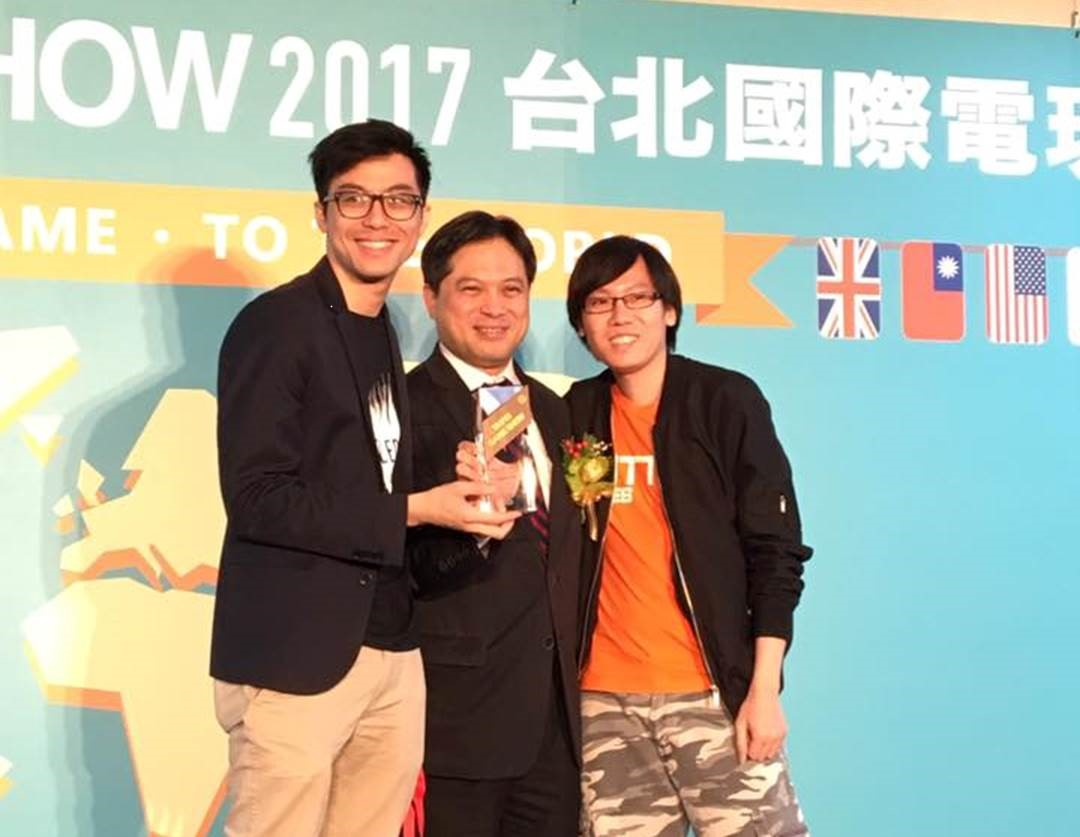
Gerald Tock, CEO of Inzen Studio, and investor Masahiko Honma, at PIXEL Studios.
Finding the right games studio to invest in needn’t be a risky move, but some investors may not know what they’re really looking for. Similarly, game developers looking to make a name for themselves may not know how to speak to an investor even with a brilliant product in the pipeline.
If you’re new to the game, here are tips from industry insiders who have been there – and still doing it.
Here’s how to tell if a team has a plan
Don’t get swept away by demos. Ask questions on the founding team’s vision and milestones.
Gerald Tock, CEO of Inzen Studio, started out without a product. But he had a team, and they had a plan. The founding team of Inzen Studio met through the Singapore-MIT GAMBIT Game Lab, where they funded research in games and tech, incubated developers and prototyped new approaches to play.
Their strength is their knowledge of the incubation process. Gerald says that Baidu is invested in them to access incubation options within the Southeast Asian market.
“The biggest asset was that we had an established team with a process. We didn’t have a product, but we had milestones and direction,” Gerald tells Tech in Asia. “While studying how incubators work with many companies, I realized that they are very process-oriented. So, our team shaped our decision-making process to be clear on why we pick a specific strategy.”
Gerald walked us through the layers that make up a game. “The combination of these factors unlocks many options for the developers to come up with interesting scenarios for players to plan their strategy”, he says.

Gerald uses the example of Splatoon, a family oriented third-person shooter. This is Honma’s favorite game, but he might not necessarily invest in Splatoon’s developer, even though he likes the game very much.
The team and their decision-making process impressed investor Masahiko Honma. He runs the largest seed-stage investment fund based in Tokyo and Singapore. The founder and general partner at Incubate Fund has invested in Inzen Studio, as well as other game companies like GoGame and Gumi.
“I want to know what the founding team is thinking. Why did they create this title? If they have a clear idea, then investors can understand why the team is different,” he says.
He thinks most gaming studios are too eager to present the game, but not the decision-making process. But he’s quick to forgive that.
“I really understand. Many founders like games. And they like their game,” he laughs. “But knowing the background of the idea is more important. So is the process of getting to know each other is important.”
Why relationships should be “wet”
On top of understanding the business process, Honma also wants to know the founder even better on a personal level. “The relationship between investor and founder is ‘wet,’” says Honma.
A “wet” relationship is one that is intimate and mutually supportive.
“Sometimes, I feel that the relationship between the two is ‘dry’ and transactional.”
Beer taps at the collaborative area in PIXEL Studios, which caters to both caters to both game developers and online creators. Unfortunately, there’s no beer here – these are props for aspiring content creators.
He’s especially interested in getting to know the founder and the team over beers. “The founder is facing challenges and pressure. When founders get stressed, they are lonely and can’t tell anyone what they are going through,” he says.
“He will be stuck. If he can disclose everything to investors, both sides can understand each other and the situation. Then, the business can be successful.”
Honma has a suggestion for aggressive investors in the region as well. “Don’t be so judgmental,” he says. “If investors don’t want to hear the negatives,” then they can’t solve the core problem with the team.
Prove addiction
It’s hard to tell if a game will be a flop or hit. Flappy Bird had users addicted. It got so addictive that its creator pulled it from the app store.
What many don’t know is that Flappy Bird remained in obscurity for the first five months after it was published. It only became a worldwide hit later.
Flappy Bird defied what most assumed were elements of a successful game. There were no sophisticated graphics, storyline, or game mechanics. In fact, the idea behind it was to create a game so simple you could play it with only one hand. It was wildly addictive as a result. And it made money.
“You need players who are hooked,” says Gerald. Monetization becomes easy after that. Data presented to investors should prove that early users are addicted.
“Traditionally, Asian gamers are more accepting of free-to-play or micro-transaction models. However, it is more than the free-to-play model that contributes to League of Legends‘ success,” Veronica “ShadowDame” Foo, community coordinator at Riot Games, tells Tech in Asia.
League of Legends is free to play, and is the most played PC game. Developed by Riot Games, it enjoys the highest number of spectators in the world. Players are spending on in-game cosmetic items. In 2016, League of Legends earned US$1.7 billion.
But their dominance in these metrics – and monetization – cannot be attributed to being free-to-play. While there’s no secret recipe to being successful, Veronica says that being community-focused is a huge stepping stone.
“While going free-to-play does help you attract more players to try out your game, players need to have a good experience. They must have fun and feel like the developers care about them. When they feel that they are getting good value for their money, they will make actual purchases,” she says.
Games, games, more games. Currently, level 2@PIXEL Studios houses 17 local game developers.
The experience paradox
Ideally, investors want to fund teams that have deep insights into the market. On top of that, Honma looks for experience.
“Especially in the gaming industry, it’s all about experience,” he says. “Capability and actual on-site experience in the past five to ten years are very important.”
Yet experience can be tricky to acquire in Singapore. “In Japan, there are many game developers. Graduates are able to join big game corporations like Sega, Nintendo, and Sony. They can acquire experience in game creation and development,” says Honma.
For game developers like Justin Ng, who wears two hats at Gattai Games in game design and business development, this presents a dilemma. How can young developers gain experience if there are few established games studios around?
Fresh out of the DigiPen Institute of Technology, he and a few of his classmates decided to take an award-winning school project to greater heights. Their product is Stifled, a horror VR and desktop game. The game is mic-enabled, and players use sound to see. But the more you talk or scream, the more monsters around you can sense you.

Before commercialization, Stifled has already won multiple awards for its innovative gameplay.
It has been tough and they are not funded yet. But their efforts are paying off: they’ll see their game published on Steam, a popular digital distribution platform for games, and the PlayStation 4. “We got greenlit on Steam in June 2016,” Justin says.
With Greenlight, users can browse games on Steam and vote for those they want to play. It’s a snap judgment based on a short description, trailers, and screenshots of the game. “About 69 percent of the community said they would play it.”
Justin hopes that investors can try to understand the studio’s strategy without pre-judging. Do you want a free-to-play mobile game, have a million downloads, and have everybody pay a dollar? Or do you want a premium game that costs ten dollars, and a hundred thousand people download it? The endgame is the same,” he says, referring to his studio. “I think it’s important to keep an open mind.”

Justin accepting the Best Innovation Award for Stifled at the Taipei Game Show on 19th Jan, 2017. Photo credit: Elicia Lee.
Play more games to understand game development
Gerald gives a crash course on identifying a good developer. “A good game has to be a unique experience. It should be accessible to the audience it’s designed for,” he says. “The most difficult thing is doing the initial design template. You need to decide what game direction you’re going with and why you’re doing that.”
“If you talk to good game producers or designers who are part of the core team, they would have played through all sorts of experiences and have a library in their heads,” says Gerald. They will remember and provide reasons why they like a certain experience or feeling playing a scene gives.”
Honma looks for developers who are like a good movie film writer. “They know how each scene goes because they’ve played it before. They understand the essence of the game, no matter how it looks like,” he says.
If you’re seeking to understand what games to invest in, look no further than the games you enjoy.
PIXEL Studios is an Innovation space by the Infocomm Media Development Authority (IMDA) that caters to media professionals, content creators, and game developers in Singapore. Through this space, IMDA aims to encourage greater collaboration and innovation so as to drive development of digital content and create more opportunities as well as partnerships in infocomm media. For more information on Pixel Studios, visit their website.
This post Becoming the next Supercell isn’t child’s play. Here are some tips. appeared first on Tech in Asia.
from Tech in Asia https://www.techinasia.com/invest-right-game
via IFTTT
No comments:
Post a Comment